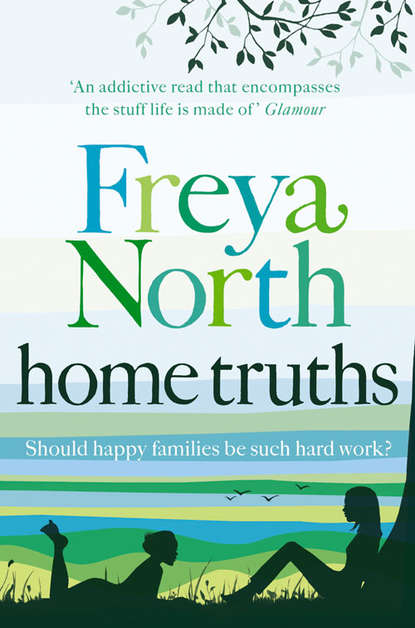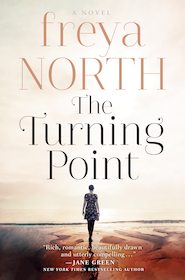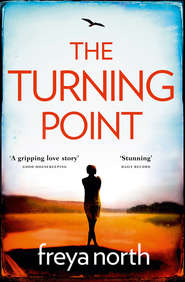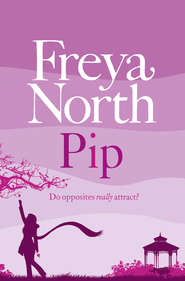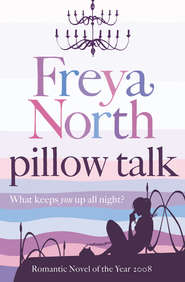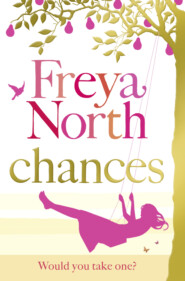По всем вопросам обращайтесь на: info@litportal.ru
(©) 2003-2024.
✖
Home Truths
Настройки чтения
Размер шрифта
Высота строк
Поля
‘Shh,’ Pip said.
‘Has he been well?’ Cat asked quietly. ‘Hasn’t had flu, or something? It’s just that he looks a little tired to me, a bit peaky, since I last saw him.’
‘I think he’s been fine,’ said Pip. ‘He certainly hasn’t said anything to the contrary. He’s probably been slaving over the stove all week, preparing for our arrival.’ She spied a copy of the Racing Post. ‘Or else he’s put all his money on some old nag and lost the lot.’
Cat walked around the living-room, fingering objects, lingering over framed photos, feeling the heavy brocade of the curtains, running her hands over the worn warm upholstery, filling her nostrils with the scent of home. It was like remaking her acquaintance with the essential elements of her personal history; reminding herself how everything looked and felt and smelt and should be, while at the same time reasserting her own presence in this sacred family space.
The Spread was simmering and sautéing and roasting and steaming. Elements of it were happily marinating, or being chilled, or else ripening at room temperature. All the pots and pans were in use and every utensil had served many a purpose. The various scents emanating from oven and hob joined forces to create an olfactory explosion that, to Django, was as contradictory yet ultimately pleasing as a jazz chord.
The point of cooking and the point of jazz are essentially one and the same, Django thought to himself as he ran a sink of water and half a jar of Bar Keeper’s Friend to soak all the knives. It’s about an element of surprise, of revelation and re-education. Of experimentation. Like when the African pentatonic scale met the European diatonic scale and jazz was born; a sound that was initially bizarre, disconcertingly discordant. It simply required one to open one’s ears and one’s heart to the flattened third and seventh notes and suddenly the aural pleasure of the blue note coursed through one’s veins. Likewise, one’s initial concern that Tabasco and tuna may be odd accompaniments to duck with a celery stuffing, dissipates when one shrugs off preconceptions of convention and allows the tastes to speak for themselves.
‘Not too dissimilar to Kandinsky either,’ Django mused as he left the kitchen in search of his nieces, ‘seemingly an arbitrary cascade of colour and shape yet utterly grounded in structure and purpose. Jazz, Cookery, Abstraction. It’s all art.’
He found them in the living-room and observed them unseen for a nostalgic moment. Just then, the girls could have been any age. The scene was immediately familiar and timeless and the continuity was poignant. ‘By golly,’ Django declared, ‘sing hey for the return of the nit-pickin’ chicks.’
The nit-pickin’ chicks looked up at him. Fen stopped plaiting Pip’s hair, Pip stilled her hands from massaging Cat’s foot, Cat brought her head up from Fen’s lap and ceased tracing patterns on her sister’s legs.
‘Django, you’re not going all sentimental on us are you?’ Pip asked, resuming her massage in a businesslike way. The girls laughed. Privately, they each felt suddenly very sentimental, in an affirming way. It had been years since Django had referred to them as the nit-pickin’ chicks, because it had been such a long time since they’d sat in their huddle with their hands almost absent-mindedly working on each other.
‘Stop fiddling,’ Django said. ‘Let’s eat.’
‘I’ll just check on Cosima,’ Fen said.
‘You were only up there half an hour ago,’ said Cat, ‘and she was quiet then.’
‘You’ll see,’ Fen said, slightly defensively, feeling entitled to her knowing nod, ‘you’ll see.’
‘It transpires that Cat hasn’t just come home because she misses your cooking,’ Pip told Django, slipping her arm around his waist, ‘she’s come home to breed.’
Django took a moment. ‘Wonderful!’ he then said, placing his hand on Cat’s head as if blessing her. ‘Another reason to celebrate. There’s some champagne somewhere. It may well be in the bottom drawer in your room, Pip.’
‘I could look in on Cosima for you while I check,’ Pip suggested to Fen.
‘No,’ said Fen decisively, ‘I’ll go. I’ll do both.’
‘The meal is organic,’ Django told her, ‘mostly. Shall I purée a little for Cosima for tomorrow?’
‘No, thanks,’ Fen said, hoping she hid her alarm.
‘The sauce is relatively orange,’ Django elaborated.
‘That’ll be the Tabasco,’ Fen said, ‘which isn’t really appropriate for a six-month-old baby.’
‘It’s never too early to prepare the palate,’ Django said.
Despite the size of the scones, the aromas from the pots and pans were too tantalizing to resist and appetites magically expanded to meet the quality and quantity of food prepared. Though the menu was predictably unorthodox and though they started with dessert because Django didn’t want to risk the lemon-and-rum soufflé collapsing, traditional manners had always been proudly upheld in the McCabe household. Don’t hold your knife like a pencil, elbows off the table, don’t talk with your mouth full. Between courses, after polite dabbing with napkins, news and plans were discussed.
‘A toast to absent menfolk,’ Django said, charging his glass, ‘to the accountant, the publisher, the doctor.’ He took a sip. ‘There was plenty of food for them, you know, even if you lot want second helpings.’
‘But we didn’t actually want them here,’ Pip said as if revealing a secret. ‘We wanted you to ourselves.’
‘And Ben’s mum wanted him to herself,’ Cat reasoned.
‘Next time you come, you bring your boys,’ Django said. ‘This stew will be good for days – you’re all to take a tub home.’ He topped up his glass again. ‘Well, another toast. To the clown.’ Everyone chinked Pip’s glass. Django cleared his throat: ‘To the art historian.’ They raised their glasses to Fen. And then they all looked at Cat. ‘What shall we toast you as?’ Django asked her. ‘Sports journalist? Redhead?’
Cat looked concerned. ‘I’m not sure.’
‘But you so love the cycling world,’ Pip said, ‘and you had such respect as one of the few female reporters.’
‘And you’re married to the doctor of one of the world’s top cycling teams,’ Fen said.
‘Ex-team doctor,’ Cat pointed out.
‘No more gallivanting around the globe with that circus of Lycra and bicycles then?’ asked Django.
‘No,’ Cat laughed though she looked a little forlorn. ‘I’ve fallen out of love.’ Pip and Fen jerked with concern. ‘With the sport,’ Cat clarified. ‘So has Ben. Too many drugs, too much cheating.’
‘So, what’ll you do?’ Pip asked again.
‘I’m not sure – maybe write more widely. Maybe not just yet.’
‘And are you back for good?’ Django asked. ‘Or is this a pit stop?’
‘This is home. This is where we want to start a family. Maybe I’ll take a leaf out of Fen’s book – and yours, Django – and make motherhood my career.’
‘No finer, more noble job than that,’ Django said, ‘mark my words.’
‘You forgot to add knackering,’ Fen laughed. ‘Academia was a breeze in comparison. Not that I have any desire to go back to it.’
‘But you’re so talented,’ said Cat, ‘you’ve had stuff published. You’ve lectured at the Tate. You’re the authority on the sculpture of Julius Fetherstone. You have all those hard-earned letters after your name.’
‘Art is still my great love – just because I choose not to work in that field doesn’t negate that,’ Fen shrugged and continued more defensively. ‘I’ve gone for a change of career. Raising my baby is just as challenging, as stimulating – and far more time-consuming.’
‘I suppose I’ll have to see which comes first – a blue line on the dipstick, or a job offer,’ said Cat.
‘I’d like to propose a toast,’ said Pip, ‘to my sisters, to our Django. To family.’
Django makes his announcement over strong Turkish coffee and enormous petits fours. He clears his throat and asks for silence, please, ladies.
‘No doubt my impending milestone birthday has been the cause for much speculation – and I hope you haven’t already planned a surprise party.’
‘You’re not going on a retreat are you?’ Cat asks.
‘On my seventy-fifth birthday?’ Django objects. ‘Good Lord no. I have no intention of retreating anywhere. Quite the opposite. They’ll be coming out of the woodwork, far and wide, because I’m going to throw a party.’
‘Here?’
‘Of course here,’ Django says, ‘a huge rollicking knees-up that will rewrite the significance of May 16th in history. I’m going to have a party that’ll be totally, eye-openingly unsuitable for someone of such an age.’





